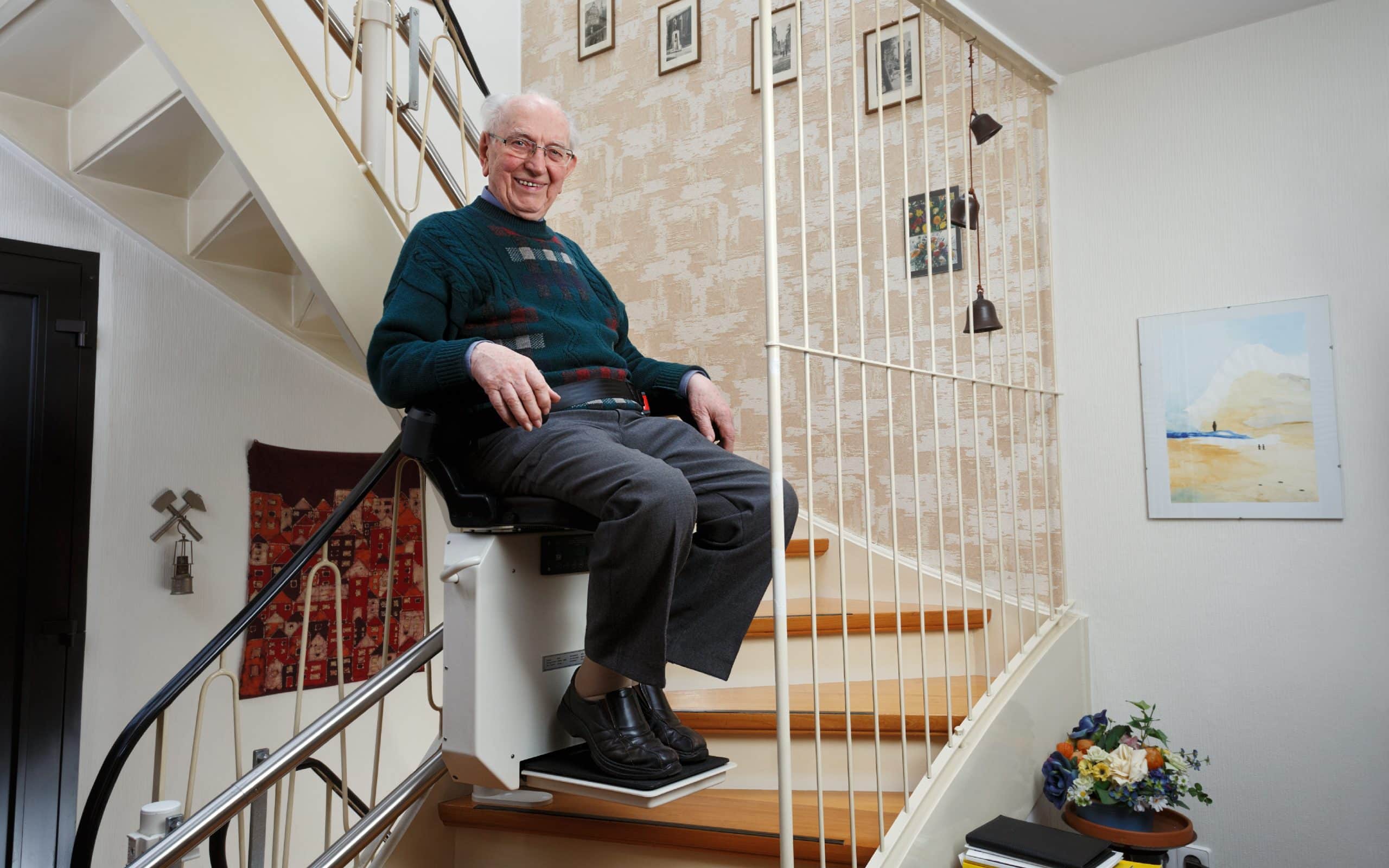For many homeowners, stairlifts provide an essential means of maintaining mobility and independence within their own homes. However, as practical and beneficial as these devices are, they can also be quite costly.
Does Medicare cover stairlifts? Let’s take a closer look at understanding Medicare coverage, whether these types of home modifications are covered, and what your options may be for buying and installing a stairlift in your home.
What Is Medicare and What It Covers
Medicare is a federal health insurance program that provides coverage for various medical services and supplies for individuals aged 65 and older, as well as certain younger people with specific disabilities. It is divided into four parts (A, B, C, and D), each covering different aspects of healthcare, including hospital stays, medical procedures, outpatient care, prescription drugs, and more.
Introduction to Stairlifts
Stairlifts are mechanical devices that transport individuals up and down stairs. They are especially beneficial for those with mobility issues due to age or disability.
Stairlifts can significantly enhance the quality of life by allowing users to move freely around their homes without the risk of falls or injury.
Understanding Medicare Coverage
To understand if Medicare covers stairlifts, it’s helpful to understand what each part covers:
Part A Medicare Benefits
Part A, also known as hospital insurance, covers inpatient hospital stays, care in a skilled nursing facility, hospice care, and some home healthcare services.
Part B Medicare Benefits
Part B covers certain doctor’s services, outpatient care, medical supplies (durable medical equipment or DME), and preventive services.
Part C Medicare (Medicare Advantage) Benefits
Medicare Advantage Plans are offered by private companies approved by Medicare. They include all benefits and services covered under Part A and Part B and usually include prescription drug coverage.
Part D Prescription Drug Coverage
Part D adds prescription drug coverage to original Medicare (Parts A & B), some Medicare cost plans, some Medicare private-fee-for-service plans, and Medicare medical savings account plans.
So, Does Medicare Cover Stairlifts?
Medicare’s Perspective on Stairlifts
For the most part, original Medicare (Part A and Part B) does not cover stairlifts because they are considered “home modifications” rather than necessary medical equipment.
Medicare’s Coverage of Durable Medical Equipment (DME)
Medicare Part B does provide coverage for durable medical equipment (DME) necessary for your medical treatment. DME includes items like wheelchairs, walkers, and oxygen equipment — items that are durable (long-lasting), used for a medical reason, not usually useful to someone who isn’t sick or injured, used in your home, and have an expected lifespan of at least three years.
Unfortunately, stairlifts do not fit into this category according to Medicare’s guidelines.
Factors That Can Affect Medicare Coverage on Stairlifts
Even though stairlifts are generally not covered by Medicare, there are some factors that could potentially affect an individual patient’s needs, as follows:
Medical Necessity
If your doctor considers the stairlift a medical necessity and documents it in your medical records — explaining why you need this equipment to overcome a medical condition — there’s a slight chance that it could influence the decision of coverage. However, it’s still a long shot.
Home Evaluation
A home evaluation might play a part in determining whether or not your home is suitable for a stairlift installation. This process is generally conducted by a qualified professional who can assess your living conditions.
Prescription from a Medicare-Approved Doctor
In some rare situations where the stairlift is deemed medically necessary for the treatment or accommodation of a specific condition or injury, a prescription from a Medicare-approved doctor may sway the decision.
Alternative Ways to Pay for Stairlifts
If you’re unable to get coverage through Medicare, other options can help offset the cost of a stairlift.
Private Insurance
Some private insurance plans may offer coverage for stairlifts or provide discounts on such purchases. It’s worth checking with your individual provider.
Medicare Supplement Insurance (Medigap)
Medigap policies are designed to pay for costs not covered by original Medicare. However, because Medicare does not cover stairlifts in general, Medigap policies usually won’t either.
Personal Loans and Financing Options
Another option could be personal loans or financing options. Some companies offer financing options specifically designed for home modifications like stairlift installations. In the state of Pennsylvania, there is an organization that provides zero percent financing options for important medical expenses. The PA Assistive Technology Foundation not only provides this option but also will look for other resources you may qualify for to assist you in paying for the equipment. You can look at their services at https://patf.us.
Local Grants or Organization Assistance
Some organizations or agencies in your local area may provide financial assistance for older homeowners or those will accessibility needs. You’ll need to do some research — start by calling local charities, churches, or social services agencies to find out if there are options near you.
Does Medicare Cover Stairlifts? No, But…
While it may be disappointing to learn that original Medicare typically doesn’t cover stairlifts, it’s important not to lose hope. Alternative methods of funding may be available depending on your situation.
If you have questions or would like some help finding resources, contact the team at Havenside. Our mission is to help people find ways of aging in place in their homes, which often involves home modifications. We can point you in the right direction and guide you through the process.
Navigating the world of health insurance can be complex and confusing. While it’s regrettable that such essential equipment as stairlifts isn’t typically covered by Medicare, understanding why and what alternatives exist can help you make informed decisions about your healthcare needs. Always consult with healthcare professionals and insurance experts when making decisions about your health and well-being.

